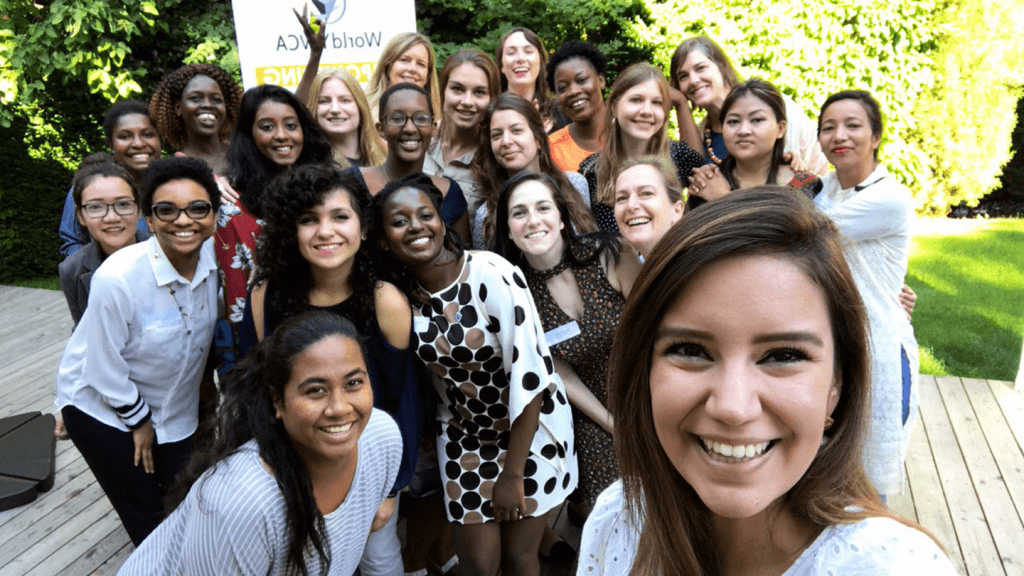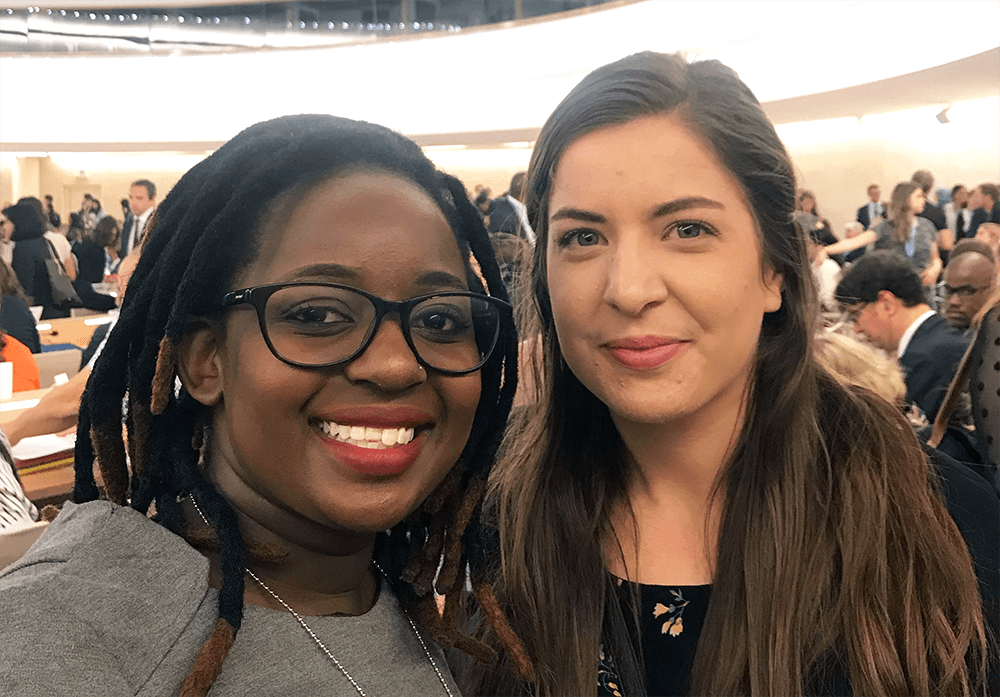I started my first week at YWCA in October 2015, just as everyone was returning from the 28th YWCA World Council in Bangkok. The energy and passion with which they spoke about the power of our global movement had me hooked from the very beginning.
At their meeting in Bangkok, YWCAs from around the world voted to adopt an ambitious and aspirational goal. A 20-year commitment that by 2035, 100 million young women and girls transform power structures to create justice, gender equality and a world without violence and war; leading a sustainable YWCA movement, inclusive of all women.
I knew from the beginning that I wanted to play a role in delivering this vision, both at the local and global level. A year later when the call came out to create a global task force of young women (later named the Young Women’s Global Advisory Council), I put my hand up to represent the Pacific region. My application was successful, and I joined eight other passionate young women from around the world tasked with figuring out how our movement can best embrace Goal 2035.

Three years on and it is clearer to me every day that our goal is not an easy one, and perhaps only now are we starting to understand how far we have to go.
It’s an ambitious goal. Not only to affect the lives of 100 million young women and girls, but to put those 100 million lives at the centre of transforming our world into a safer, more equal and inclusive place.
To do this we need to break down barriers, centre the voices of diverse young women, afford them equal decision-making power within our movement and develop support mechanisms that allow for young women and girls to be at the centre of everything we do. An important step is recognising where we do this well, and then looking at the gaps that exist between our values and the practical application of our work.
I strongly believe in our movement’s commitment to recognising young women and girls not as the passive recipients of our work, but as invaluable instruments in developing solutions to the pervasive challenges of gender inequality, discrimination and oppression in all its forms.
Through our commitment to championing young leaders we can achieve our own organisational goals, as well make room for the voices and contributions of young women as change agents in the broader global context. This is vital if we are to achieve any form of sustainable change.
Importantly, we must also recognise the uniquely transient nature of being young. This requires a continued effort to identify and respond to the changing needs and priorities of young women and girls. We must continue to reinvent the work we do in supporting young women and girls as their realities and experiences continue to change.
To me, Goal 2035 means that on my 45th birthday the world will recognise and value the power of young women and girls in every aspect of public and private life. Not only will they be recognised as agents of their own lives, but in supporting others to claim their power. To get there, our movement needs to back young women and girls to lead us to into the future, to 2035, and beyond.
While I may be a young woman myself, the true key to Goal 2035 will be how the young women of today transform to become allies to the young women tomorrow, and for the many generations to come.

Lisa Gascoigne (right) with Varaidzo Magodo-Matimba (Africa regional representative) at the 38th session of the Human Rights Council in 2018
This article was written by Lisa Gascoigne.
Lisa is the Young Women’s Leadership Coordinator in the Adelaide region for YWCA Australia and a member of the World YWCA Young Women’s Global Advisory Council.




